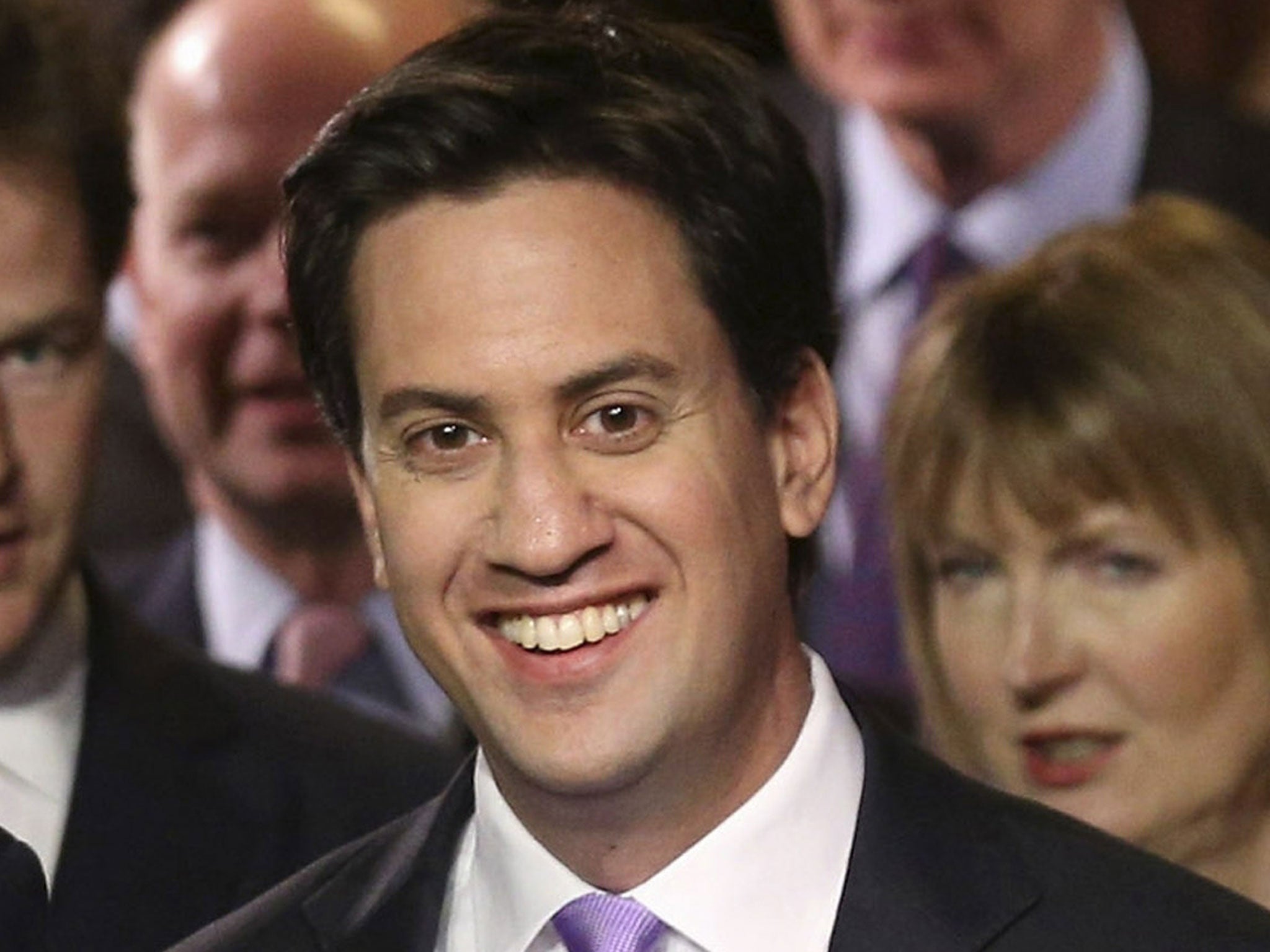Ed Miliband needs to hold out against EU referendum
He would be betting the ranch on an issue which is not of primary concern to the electorate


Seen from within the cosy confines of Westminster, the question of whether Ed Miliband will match David Cameron’s pledge to hold an In/Out referendum on EU membership by the end of 2017 is little more than part of an absorbing electoral chess game. And judged like that, the answer for many spectators – inside as well as outside the Labour Party – is fairly obvious. Is Miliband really prepared to put up with the repeated taunts from Cameron that the People’s Party does not trust the people? Especially when several prominent Labour figures, Ed Balls included, have urged him to go for it.
After all, Labour has already decided to abstain in next month’s second reading of the Private Member’s Bill from the Tory Eurosceptic MP James Wharton, which seeks to enshrine Cameron’s commitment in legislation. Publication of the Bill is expected this week. Isn’t this the first step towards accepting the inevitable and endorsing a referendum? And if it isn’t, shouldn’t it be?
That isn’t – so far at least – how Miliband sees it. Again you can construct all sorts of explanations for this – that he is some covertly fanatical Europhile, that he is too much an ivory tower intellectual and too little of a political tactician, that he is an elitist who thinks some issues are too complicated to be put in front of the wider public, and so on. The real reason, I suspect, is at once simpler and, to many, more surprising; that the Labour leader is driven more by a conviction that he will win the next election than by a fear that he will lose it. The fact that lots of people, including quite a few in his own party, don’t fully share that conviction isn’t relevant here. If you think you are going to be a Labour Prime Minister after 2015, the referendum question begins to look rather different.
For a start, thanks to a timetable not of his own choosing, his first period of office would be overwhelmed by preparations for a referendum on an issue which all the polls suggest, Ukip’s surge notwithstanding, is not of primary concern to the voters. Second, he would have a strong prospect of losing it. If Cameron, should he remain as Prime Minister, can do a 1975 Harold Wilson and come back from his negotiations with a few improvements, however cosmetic, to Britain’s EU settlement, he would have a sporting chance of winning a referendum despite the opposition of many in his own party but with the support of most of the Labour Party and the Liberal Democrats.
For Miliband – up against a Tory party which had summarily ditched Cameron and Osborne and which was now seeking to revive its fortunes under a charismatic leader who owed his mandate to those MPs and activists who want out of Europe – a referendum defeat is a real possibility. You don’t have to believe that these are lousy circumstances in which to decide Britain’s 21st-century place in the world in order to see what an unpalatable prospect that would be.
For a Prime Minister – and probably his government – the loss of an EU referendum would be disastrous. Even if it could limp on until 2020, possibly engulfed by a sterling crisis triggered by deep economic uncertainty, the Government’s credibility – rather like Harold Wilson’s after devaluation in 1967 or John Major’s after Black Wednesday in 1992 – would be fatally undermined. To use the memorable phrase coined more than 15 years ago by Ken Clarke – in the context of EMU – Miliband would be “betting the ranch” on a referendum, and with every possibility of losing it.
To sustain his resistance to the idea of a referendum, Miliband needs to persuade both his shadow Cabinet and, ideally, the wider electorate. As far as the first is concerned, it isn’t actually clear – at present, at least – that Cameron and Osborne, who probably on balance don’t want to leave the EU if they can help it, will fight the 2015 election with Europe at the heart of their campaign. It hasn’t worked in the past and, in any case, they are likelier to concentrate on the proposition that the economy was healing, that the mess was all Labour’s fault, and that Miliband isn’t a credible Prime Minister. Which means that the failure to pledge a 2017 referendum may not be quite such an electoral liability, as some enthusiasts for one argue.
Labour plans to promote its own EU reform programme, which it can plausibly argue has a better chance of acceptance in multilateral negotiations, but probably on a longer timetable than for Cameron’s planned unilateral negotiation. Already committed to a referendum in the event of significant Treaty changes which affect Britain, it may have to go further and acknowledge that an In/Out referendum will eventually be needed, but not on an artificial timetable set to appease the Tory Europhobes.
On the one hand, Tory taunts won’t go away if Miliband continues to resist matching Cameron’s pledge. But on the other, his own credibility could be at risk if he is seen to bow opportunistically to short-term pressure. Continued resistance to the siren voices in favour of a 2017 referendum won’t be easy. But even in chess, sometimes it’s necessary to sacrifice a piece to focus on the endgame.
Join our commenting forum
Join thought-provoking conversations, follow other Independent readers and see their replies
Comments
Bookmark popover
Removed from bookmarks